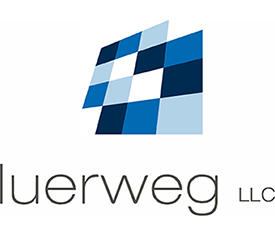AICPA standards & SOC reports
📘 AICPA Standards & SOC Reports
🧾 What Is the AICPA?
The AICPA (American Institute of Certified Public Accountants) is the national professional organization of CPAs in the United States. It sets ethical standards, auditing standards, and information security reporting frameworks, including those used in SOC (System and Organization Controls) reports.
AICPA frameworks are particularly critical for:
- CPA firms providing IT/financial services
- Cloud service providers
- Tax technology vendors
- Financial institutions handling sensitive data
✅ What Are SOC Reports?
SOC (System and Organization Controls) Reports are independent audit reports that assess a service organization’s controls related to security, availability, processing integrity, confidentiality, and privacy. They help build trust between service organizations and their customers.
They are conducted under the AICPA’s Trust Services Criteria and are aligned with attestation standards (e.g., SSAE 18).
🧩 Types of SOC Reports
| Type | Purpose | Audience | Focus Area |
|---|---|---|---|
| SOC 1 | Financial reporting controls | Internal auditors, financial controllers | Controls over financial transactions |
| SOC 2 | Security & operational controls | IT, compliance teams, regulators, clients | Trust Services Criteria |
| SOC 3 | Public assurance | General public | Same as SOC 2, but summary level |
| SOC for Cybersecurity | Enterprise-wide cyber risk posture | Executive management, stakeholders | Cybersecurity risk management |
| SOC for Supply Chain | Vendor/manufacturer security & integrity | Supply chain partners, regulators | Production and delivery controls |
🔐 SOC 2 – Most Relevant for IT and Data Handling
SOC 2 is the most commonly referenced standard for CPA firms, SaaS companies, and tax tech vendors that manage or process sensitive customer data.
📋 SOC 2 Examines 5 Trust Services Criteria:
- Security – Protection from unauthorized access
- Availability – System availability for operation and use
- Processing Integrity – Complete, valid, and accurate system processing
- Confidentiality – Protection of sensitive information
- Privacy – Protection of personal identifiable information (PII)
➡ You can choose which of these criteria your report covers based on your services and client expectations.
📝 SOC Report Types: Type I vs. Type II
| Type | Covers | Time Frame |
|---|---|---|
| Type I | Design of controls at a point in time | One-time snapshot |
| Type II | Design and operational effectiveness over time | Typically 6-12 months |
➡ Type II is more rigorous and trusted, especially in due diligence and vendor management.
🔍 Why Are SOC Reports Important for CPAs and Tax Firms?
- Regulatory compliance: Shows that your firm follows strong IT security and internal control practices
- Client assurance: Offers transparency and builds trust in B2B relationships
- Competitive advantage: SOC 2-certified vendors are often preferred
- Risk management: Helps identify and correct weaknesses in security and operations
- Due diligence: Large clients and institutions often require SOC reports before onboarding vendors or service providers
📊 AICPA Trust Services Criteria Framework
SOC 2 and SOC 3 are based on the Trust Services Criteria (TSC), which includes:
| Component | Description |
|---|---|
| Control Environment | Organizational structure, commitment to integrity |
| Communication & Information | How data flows and is protected |
| Risk Assessment | How risks are identified and addressed |
| Control Activities | Specific procedures and controls in place |
| Monitoring Activities | Ongoing or separate evaluations of performance |
| Logical & Physical Access Controls | Access restrictions and authentication |
| System Operations | Monitoring and maintenance processes |
| Change Management | Managing system and application updates |
| Incident Response | Detecting and responding to security incidents |
📎 Who Performs SOC Audits?
SOC reports must be performed by an independent CPA firm with experience in attestation services and information security. These firms must follow the AICPA’s Statement on Standards for Attestation Engagements (SSAE 18).
🛠️ How to Prepare for a SOC 2 Audit
- Conduct a readiness assessment
- Identify and document all controls related to the selected Trust Services Criteria
- Implement missing controls (e.g., encryption, access logs, MFA)
- Train staff on control-related responsibilities
- Choose between Type I or Type II based on client needs
- Engage with an AICPA-certified firm to perform the audit
✅ Summary: Key Benefits of SOC Reports
| Benefit | Explanation |
|---|---|
| Trust | Increases client confidence in your security posture |
| Compliance | Supports GLBA, IRS, FTC, and state data laws |
| Risk Reduction | Identifies operational and cybersecurity gaps |
| Market Access | Required in RFPs and enterprise vendor reviews |
| Reputation | Shows your firm values transparency and accountability |


